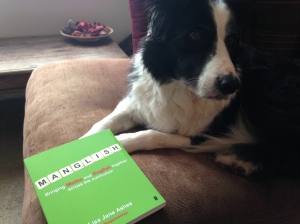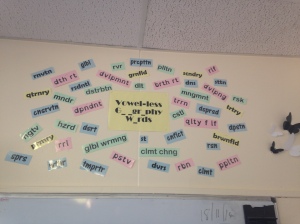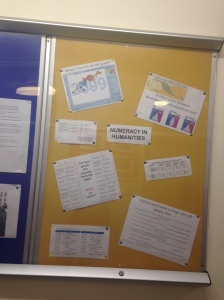Well it’s been a long time coming but I’ve been a wee bit distracted with leading an Iceland trip and getting back to school mode! The Geography Association conference this year was ace. Really enjoyable. Thank you so much to all of you who came to my Revision Games workshop! I was truly surprised to have standing room only and flattered by the lovely comments you gave in feedback. I really hope that you can find one tiny thing that is useful and then take it and make your own.
Below is the presentation from the Revision Games session. If you download the file you can see in the comments box in powerpoint which explain each section.
I was also privileged to help with delivering a Discover the World workshop alongside Simon Ross sharing the website resources from Discover Geography . This excellent site shares teacher resources for Key Stage 3 – 5 for a range of locations including Iceland, Norway, Azores, etc. that have been created by teachers from experiences in the field and can be used before, during and after trips or as virtual fieldwork and just great case studies. I shared some materials from the website that had been created from a teacher inspection trip to the Azores, and just explained how I have modified and used these materials for myself in the classroom. If you want to have details on the different sites and what we saw in the Azores, then check through my posts from the visit in April 2014.
Finally, this year’s GA conference saw the first ever TeachMeet courtesy of David Rogers‘ badgering which was an epic success. Lucy Oxley and the GA team organised a fantastic event, and it was thanks to sponsorship from Discover the World. When we first stepped into the venue I got nervous – worried we wouldn’t pull it off, that nobody would come, that it was such a big room and I would muck up, all sorts! But it was so so good. The reason it was good? Purely down to the range of presenters in the room, the Twitterati interacting online (thanks to Rich Allaway for live streaming it), and the networking and rapport going on in the room itself. Particular credit has to go to Alan Parkinson for sharing some great ideas in a hilarious way (‘who is David Rogers anyway?’!) and to Paul Berry for closing the show in style. I had known Paul as a fairly quiet, unassuming, gentle kinda chap with a cheeky smile and penchant for vino…but he blew me away with his presentation at the end. Coming up to retirement in a few months he bounced all over the stage squawking blow-up parrots, throwing inflatable globes around, sharing all sorts of whacky and brilliant ideas, and showing that he is a brilliant educator. Loved it. All the other presentations were fantastic as well, and great to see new people who haven’t spoken before too – I merely mention Alan and Paul because they made me laugh so much. Epic evening so thank you all. David has a full run down of the event and the Google Hangout video archive on his blog here. Cannot wait for next year’s!
My own TeachMeet 6 minutes was based on a title thrown on me: ‘Bill Shakespeare was a Geographer’ and just has a few ideas with quotes from text for how to embed good old Bill and literacy in general into geography lessons. Ticks the boxes of ‘literacy in every lesson’ and ‘we are all teachers of English’ as well as just being good fun, useful, enlightening, and ultimately improving literacy and writing analysis which good geographers have to be able to do. If you want to know what I was rambling on about during each slide then look at the video on David’s blog, scroll to about 44mins and you’ll be able to hear some waffle.
All in all, GA Conf 2015 was great. Really enjoyable sessions attended and great to take part in. Roll on Derby 2016.








